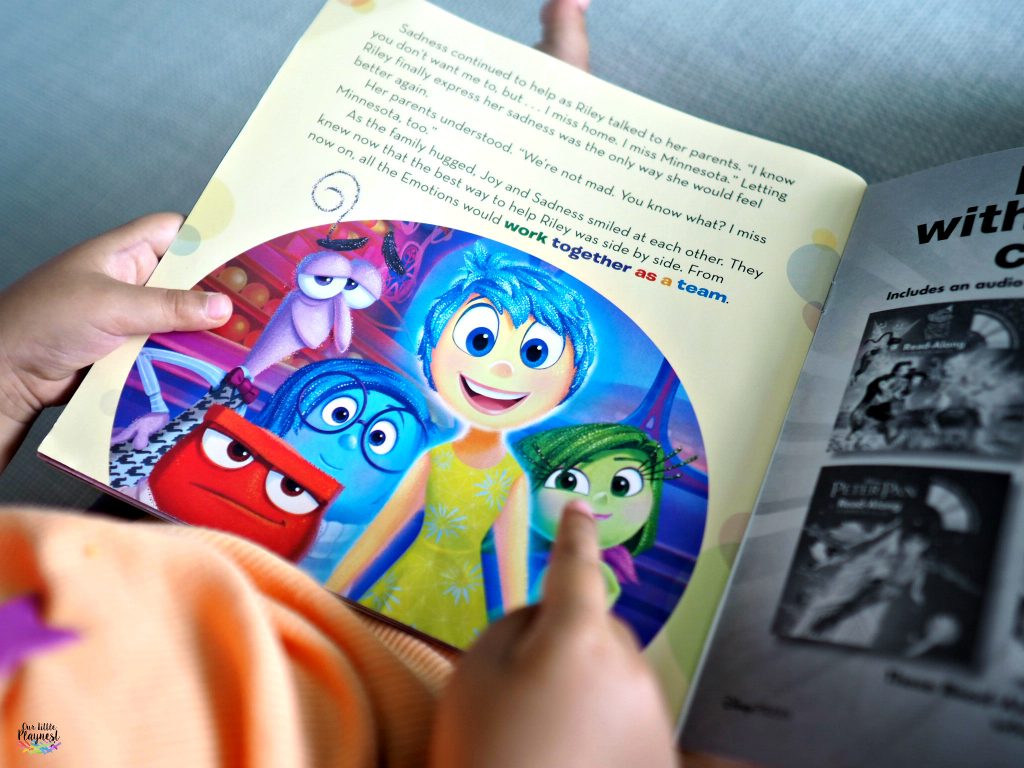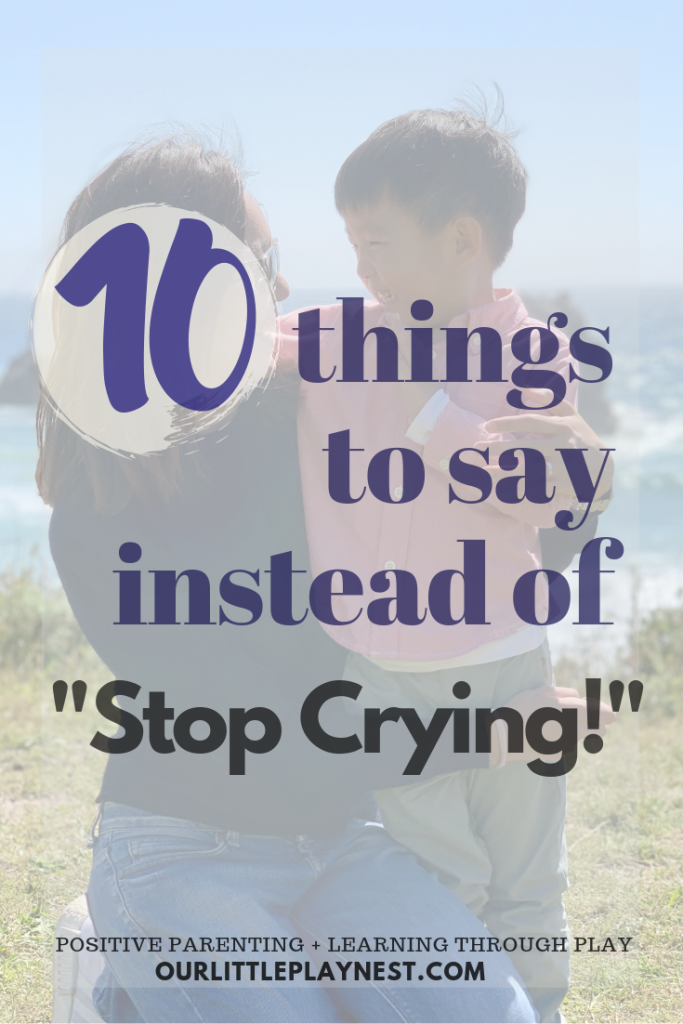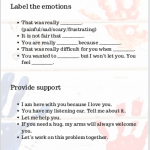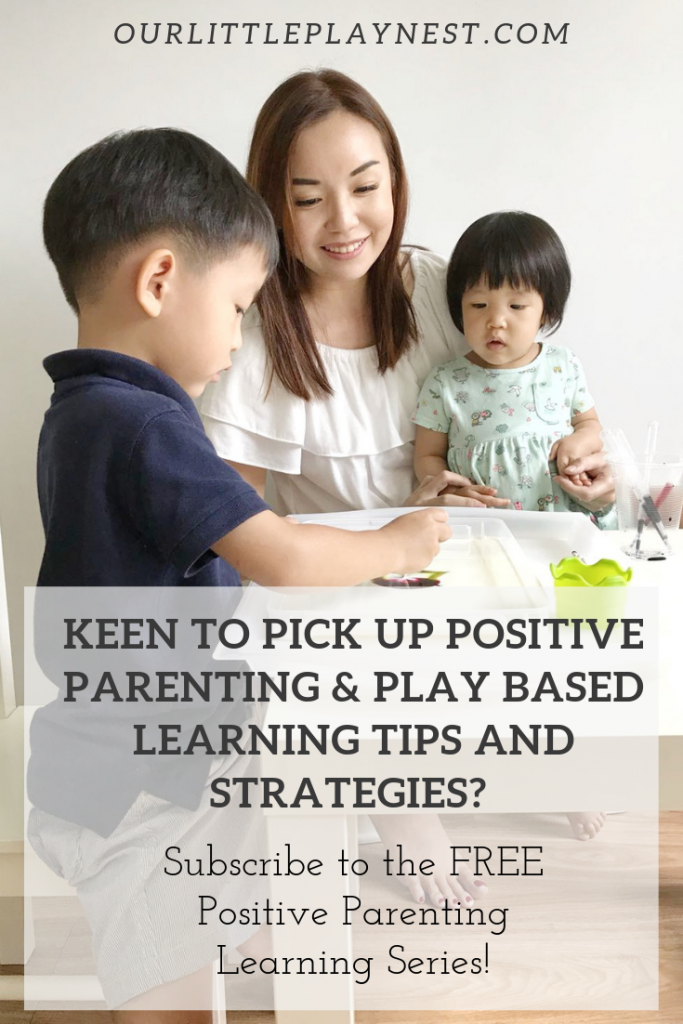What’s the first thing you say when your child is crying? I used to yell “Stop crying! No crying! Stop NOW!” Then I realized, not only is yelling not helping the situation, my child is robbed of the opportunities to learn to communicate and regulate his emotions.
Children experience a whirlwind of emotions throughout the day. All the feelings they experience are valid, it is part of their growth and development. Just like the characters in the movie “Inside Out”, every emotion has a purpose!

Most of the time, children end up crying because they cannot find the words to express themselves, control their impulse, or analyze the situation. This is because their prefrontal cortex is not fully developed.
Its not their fault!
Let’s put ourselves in the shoes of our kids.
Imagine you are very upset about something at work and feel very emotional. Would you prefer your husband say “hey tell me about it” or “Stop crying. It’s a small issue”. Which is more helpful? Which response makes you feel loved and supported? I would definitely prefer the former.
So instead of saying “stop crying” to your child, here are 10 things you can say instead.
(Before saying these, please make sure that you are calm and composed. If you are agitated, I suggest you step aside and take a breather to avoid adding to the chaos.)

When your child is crying inconsolably, you label their emotions and/or provide support.
Label the emotions
We want our children to know that every emotion they experience is allowed.
And there is nothing wrong with crying!
We teach them the names of the feelings, so that the next time they experience the big emotions, they can use the exact words you taught them, instead of crying. We are honing their communication skills in the process.
Acknowledging the emotions without judging makes our children feel that we are on their side.
Here are some alternatives to “stop crying”:
- That was really _____ (painful/sad/scary/frustrating).
- It is not fair that _____ (you don’t get to eat the chocolate cookie).
- You are feeling _____ because _____ (angry…your sister destroyed your lego).
- It was difficult for you when _____ (papa goes for work. You miss him.)
- You wanted _____but I won’t let you. You feel _____. (to buy the toy car… upset).
Provide support
When your child is emotional, irrational, out of control, that is when they need you the most. They can’t stop the big feelings because they are just not able to do it. The brains are not ready!
Let your child know that you are fully present:
- I will be here for you.
- You have my listening ear. Tell me about it when you are ready.
- Let me help you.
- If you need a hug, my arms will always welcome you.
- Let’s work on this problem together.
Practice + Patience
I haven’t said “stop crying” in a while, and I noticed that the duration of each meltdown has reduced. Of course, it takes lots and lots of patience and practice on my part. I make a conscious effort to avoid the two words.
Free refrigerator sheet
Head over to Resource Library to download the free refrigerator sheet: 10 things to say instead of “stop crying”. This visual reminder should come in handy when you are extremely cross and frustrated during your child’s meltdowns.

Let’s support each other in this parenthood journey! Drop me a msg to let me know if these phrases have worked in your home!
Learn more about why you should stop saying “stop crying!”:


2 thoughts on “10 things to say to your child instead of “Stop Crying!””
Hi Jacinth! How do you get a word in when it’s a meltdown of screams and struggles? I’ve tried many times to use different versions of the 5 points above but..the child is cry screaming! We basically have to wait it out like for a really Long time and by the time that happens he would have moved on or forgotten and distraction seems the best tool so far.. what do you do? Dealing with a 2yo btw.
Hey Jade,
Sometimes you can pause to give him space, or hug him (depending on his temperament and love language.) Use short sentences like “I understand… I get it…You are angry.” Labelling emotions help to calm him down faster. You are doing a great job waiting it out because you can’t do any teaching while he is crying. Personally, I wait until my child is happy and ready, and I remind her of what happened. Eg. Remember you were upset when we have to leave the playground? You like playing so much you wish you can play longer. Then I discussed with my girl about what she will do the next time we go to the playground. And I remind her again before we head out to the playground. 2-year-old may not be able to hold a full discussion with you; you can give him choices instead. (Do this only when he is in a receptive mood!)